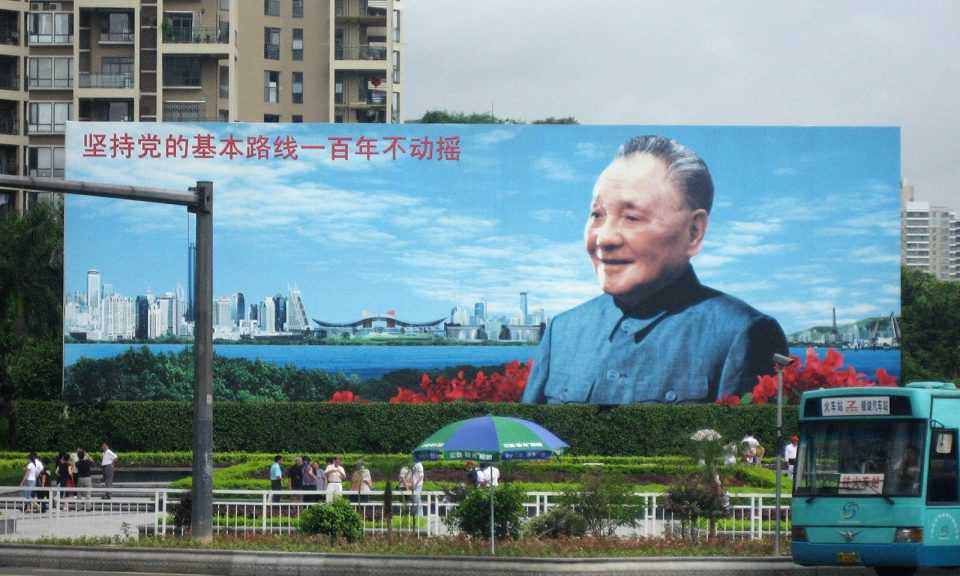In the shadow of Deng, Xi’s southern tour a big letdown
28 October, 2018

Blame it on Deng Xiaoping, China’s paramount leader from the late 1970s until 1997. China watchers have high expectations of southern tours.
It is difficult to imagine what he might have done to win their applause, but President Xi Jinping’s 2018 southern tour coinciding with the 40th anniversary of China’s “reform and opening up,” which was initiated by Deng, has broadly been met by China watchers with yawns.
Commenting in his widely read newsletter Sinocism, respected China watcher Bill Bishop observed that Xi had again affirmed his support for private companies. But, wrote Bishop, he said little more than what amounted to a reiteration of support for the “trajectory China is already on.”
Bishop added: “It feels a bit anti-climactic.”
‘Unimpressed’
“Instead of bold new policy initiatives, Xi is signaling that he’s okay with the status quo,” commented Trivium China, another well-regarded newsletter on China affairs. Trivium added: “Call us … unimpressed.”
In fact, even state media seemed unusually uninterested in what Xi was up to in China’s southern province of Guangdong, home to one of the first Special Economic Zones (SEZ), Shenzhen, famously transformed in 40 years from a fishing village into a sprawling city with a population of more than 12 million.
As Trivium noted: “Everyone knew that the big man was in Guangdong. But there were no reports about what he was doing, and news of Xi’s trip was absent from the nightly news.”
That dearth of the expected adulatory “reporting” ended on Thursday when CCTV Evening News aired a 22-minute report on his trip. That was taken by China watchers to signal that the tour was officially a wrap-up.
Chinese-language state media reported that Xi visited “historical and cultural districts in Guangdong” and expressed his interest in Cantonese opera, in a display of “his deep feelings for the excellence of traditional Chinese culture.”
The Xinhua report went on to say that Xi equated self-confidence with cultural self-confidence, remarking that it was fundamental to “the competitive endurance and spiritual strength of the nation in a turbulent international environment.”
‘Correct view of history’
In an even more predictable move, Xi spoke on the importance of the guiding principles of Marxism, establishing a “correct view of history” and how cultural soft power can be transformed into spiritual energy, serving as an “ideological driving force for realizing the Chinese nation’s great rejuvenation of the Chinese dream.”
If there is anything interesting at all about this, it is the uncanny cadences between Deng’s 1992 southern tour and Xi’s 2018 southern tour. But more interestingly, it is for radically different reasons.
Deng went with south to reaffirm his commitment to economic reforms as China had almost achieved the status of a pariah state in the aftermath of a bloody crackdown on student-led protests in 1989.
The West was unified in condemning the violence in the avenues around Tiananmen Square, and foreign companies pulled out of China. It was as if China was returning to the isolated status it had endured during the rule of Mao Zedong, which lasted from the establishment of the People’s Republic of China in 1949 until the so-called Great Helmsman’s death in 1976.
Domestic oppression, expansionist agenda
Xi went south amid the throes of a renewed backlash against China. But this time it was different. The world regards China with increasing wariness not due to domestic oppression (though that is ongoing throughout China, and in particular in Xinjiang, where a million ethnic Uighurs languish in “re-education centers”) but due to China’s now avowedly expansionist agenda.
To be sure, foreign companies are not deserting China – at least not willingly – but Xi’s tour was undertaken against a backdrop of trade tariffs and opposition to its virtual occupation of the South China Sea, alleged political meddling in the democratic processes of foreign nations and what is being labeled debt-trap diplomacy.
In Guangdong, state media quoted Xi as saying the road of “reform and opening up” was the “correct path” and China could create “bigger miracles” by sticking to it.
Even though his tour is today legendary, the truth is that Deng himself said little more 36 years ago.
The only surprise of Xi’s southern tour is that those watching it were disappointed.
